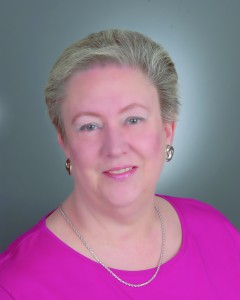By Vicki Aubry, Realtor, ABR, SRES, Prudential Prime Properties

I often hear the question “Why is this condo fee so high?” by both potential buyers as well as agents, but I ask the opposite question of some condominiums, “Is this condo fee too low?”
It shows me that the uneducated buyer, and their agent, does not understand what the condo fee covers, as well as what happens when that fee is not high enough to run the condominium complex over the “long haul.”
The condominium complex whose condo fee is low is surely, on the surface, attractive to buyers. The Board may have no problem running the day to day operations of the condominium, but what about creating adequate reserves for the future capital improvements? Will this low condo fee eventually result in a “special assessment” to the unit owners for those upcoming improvements? The answer is, most likely, yes.
This is not negotiable to the unit owners. Each will need to find a way to make the payment which could be required as a lump sum or spread over a period of time. While it is true that newer complexes may not expect to be making those capital improvements soon, there is little history to go on to know the true longevity of the roofs, decks, roadways, siding, and other components that make up the common area. Unplanned repairs from developer errors or short cuts have happened in the past. Some show up only over time.
Here is what you should know to determine if the condo fee seems reasonable to run the complex and plan for the future: the condominium budget is planned annually to cover both operational expenses and payment to a reserve fund for future capital projects. The operational part of the budget goes to run the property on a day-to-day basis. This includes such items as landscaping, snow plowing, trash removal, painting, general repairs, and the master insurance.
The planned future capital projects can include such items as roofing, sidewalks, vinyl siding, upgrades to landscaping, additional parking, new curbing, replacement decks and patios, pool liners, clubhouse renovations, and virtually anything that affects the condominium as a whole.
Large associations generally hire professionals every few years to perform a “reserve study” so that when it is time to have these capital projects done that there are adequate funds to cover these projects.
Therefore, it is good to purchase a unit in a complex that has had a good track record of managing their money well and collecting adequate monthly condo fees so that you won's all of a sudden be “kicking in” the shortfall. Healthy reserves are good for both unit owners as well as the condominium overall.
Rather than focusing on the fee itself, the prospective buyer and their agent should ask about the history of special assessments, what upcoming projects are planned, and is the money in reserve adequate to cover these planned expenses.
Finally, each unit has a predetermined “percentage of common area interest” that is in the condo docs and it is from that percentage each unit owners” monthly fee is determined.
To learn more about purchasing a condominium give me a call! It is really a wonderful lifestyle choice and one that may be right for you!
An independently owned and operated broker member of BRER Affiliates Inc. Prudential, the Prudential logo and the Rock symbol are registered service marks of Prudential Financial, Inc. and its related entities, registered in many jurisdictions worldwide. Used under license with no other affiliation of Prudential.












